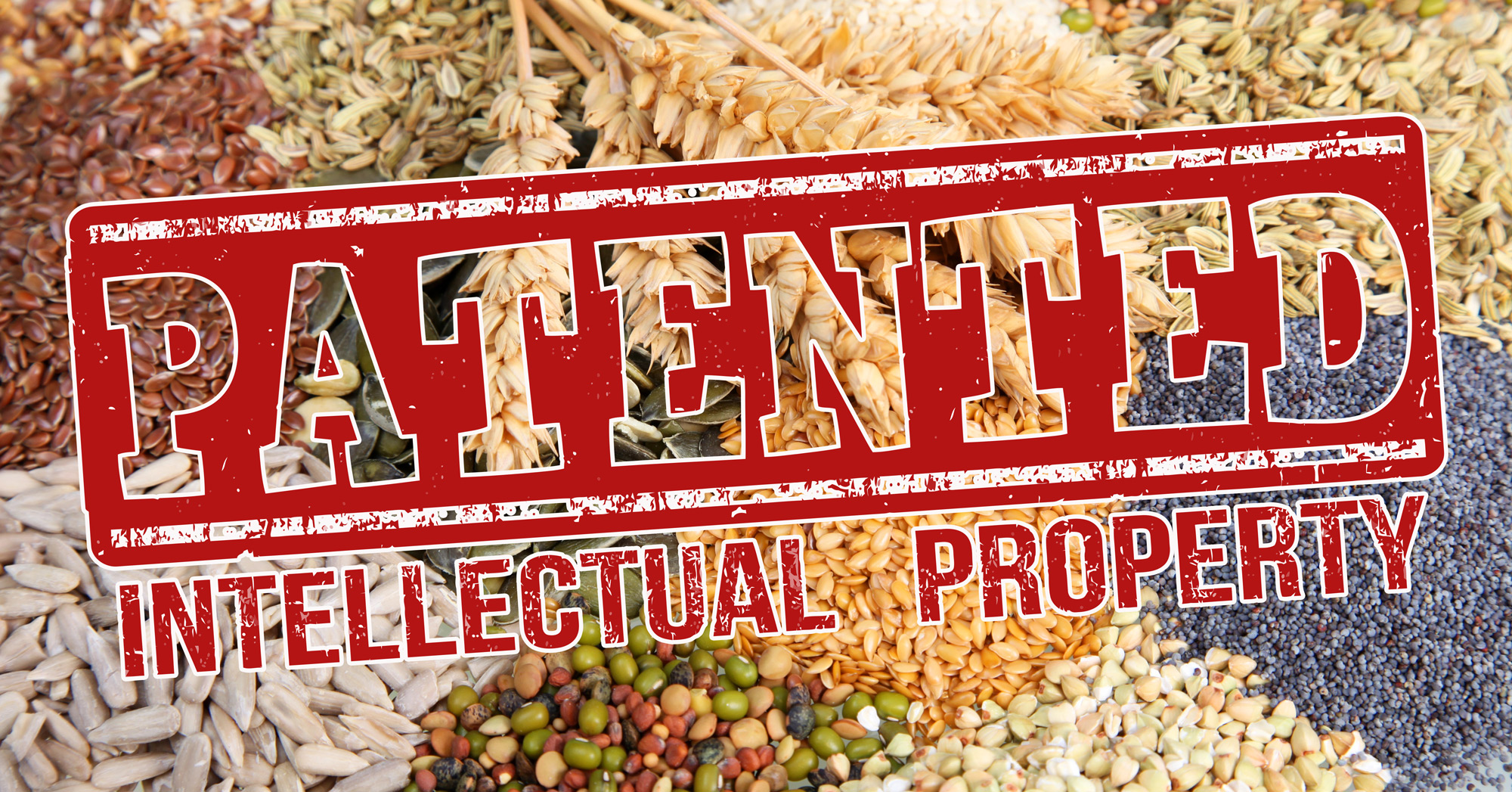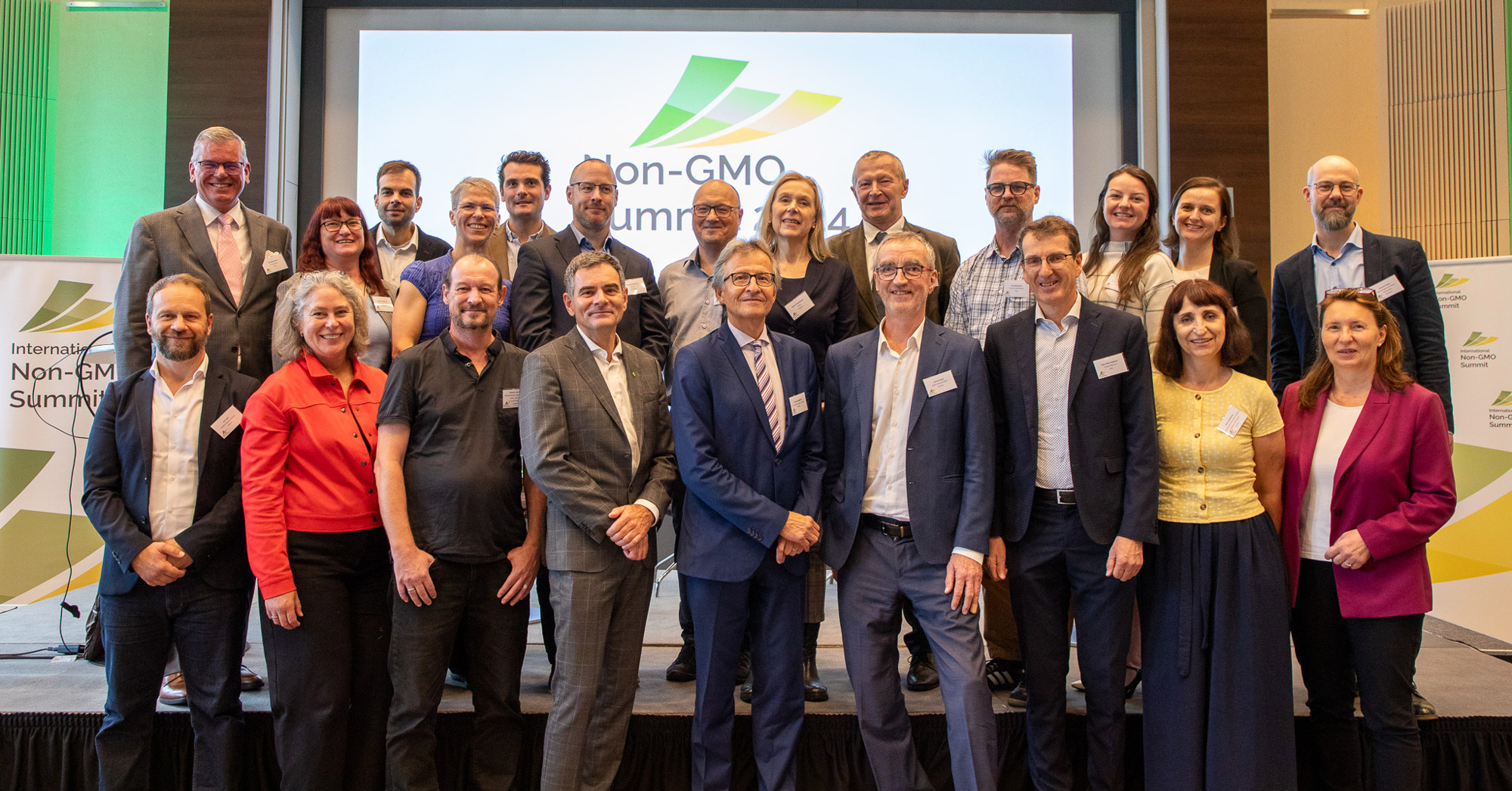Welcome to Review 578, which covers the latest developments regarding new GMOs, including the industry’s global push to remove regulatory safeguards from these products.
For why deregulating GMOs is a bad idea that’s not supported by the science – and why it doesn’t make sense to set an arbitrary figure for the number of modifications that a plant can have and still be exempted from safety assessment and regulation (see this for an example), see our resources on the problems with gene editing here and here.
GMO safety is not a numbers game. Even a single small modification can fundamentally alter a plant’s biochemistry so that it becomes toxic or allergenic. It’s not just the number of modifications that matter, it’s what they do. And only a detailed case-by-case risk assessment based on hard data can begin to investigate that question. Regulatory safeguards remain vital.
CRISPR gene editing causes large-scale genetic damage while correcting mutant genes
CRISPR-based gene-editing tools are being developed to correct specific defective sections of the genome to cure inherited genetic diseases, with some applications already in clinical trials. However, there is a catch: under certain conditions, the repair can lead to large-scale deletions and rearrangements of DNA – as in the case of targeting the NCF1 gene in chronic granulomatous disease (CGD). This was reported by a team of researchers and physicians. Their findings have important implications not just for gene editing-based therapy, but also for CRISPR-mediated gene editing of animals and plants, where the same types of large-scale genetic damage could be triggered. Indeed, because such editing is carried out with much less caution in non-human organisms, the likelihood of such large-scale damage occurring is hugely increased. The study also shows that attempts to avoid these problems by using adaptations of CRISPR gene editing technologies, such as prime and base editing, may not succeed.
EU deregulation plans set to move forward
The EU Commission’s proposal to deregulate new GMOs has been stuck for months in the Council of the EU, which is made up of EU government ministers who meet to discuss, amend and adopt laws. This is because agreement has not been reached among member states. Over the past six months, the Hungarian Presidency of the Council has tried to open discussions on the proposal’s lack of scientific rigour, as well as the importance of proper risk assessments and labelling for the consumer. However, those discussions did not happen, as pro-deregulation member states have pushed to avoid them, choosing instead to rely on EFSA opinions that new GM plants don’t pose any greater risk than conventional plants (for why these opinions are at odds with the evidence, see this). Opposition to the pro-GMO push has been weak, in part due to the technical complexities of the topic and the limited understanding of many member state representatives, as well as an unwillingness to challenge EFSA as an authority on “The Science”.
Now that Poland has taken over the Presidency of the Council, it is keen to progress the deregulation plans, though it has concerns about the impact of patents on farmers and breeders (all GMOs, including new GMOs, are patented and this will restrict access to seeds and germplasm). Poland is determined to find a solution to the patents issue and conclude the file. Accordingly, the Commission will conduct a study on the impacts of patents, to be published by 2026.
A video recording of a discussion on these topics in the EU Agrifish Council is available here, giving an idea of the different positions of member states. You can jump straight to the section, “AOB: New genomic techniques” by using the menu below the video.
What can be achieved at EU level against patents on seeds?
The international coalition No Patents on Seeds! has welcomed the publication of an expert opinion commissioned by the Green parliamentary group in the German Bundestag, even though it does not agree with some important points in it. The expert opinion, by Prof Dr Axel Metzger of Humboldt University, Berlin, questions whether the proposals put forward by the EU Parliament and the EU Council of Ministers with regard to a possible ban or restrictions on the patenting of plants derived from new GM techniques could actually be implemented. No Patents on Seeds! agrees with the expert opinion that the proposals would have hardly any effect because in order to prohibit patents on GM plants, international treaties such as the European Patent Convention (EPC) would need to be amended – a complex process that would take around ten years and that would involve countries outside the EU which might not wish to see patenting restrictions. This, of course, means that if Poland persuades the EU to push ahead with deregulation of new GMOs on the basis that the EU will ban patents on them, this may never happen or, at best, not for a very long time. For more on the expert report, as well as on No Patents on Seeds!'s concerns about some of its content, see the article here.
Corn seeds sprayed with GM gene-edited bacteria already being used on 5% of American corn crops
Corn seeds sprayed with GM gene-edited bacteria are already being used on 5% of American corn crops. An alliance of Bayer, Corteva, Ginkgo, Novozymes and the manufacturer Pivotbio persuaded the US goverment that these bacteria need no safety review by regulators. Yet Pivot’s own advisers concede there are unanswered questions. And Kendra Klein, deputy director for science at Friends of the Earth US, said, “We are engineering organisms to do things that nature has not designed them to do and releasing them, in the billions, into incredibly complex ecosystems.”
International Non-GMO industry calls for transparency on new GMOs
More than 160 representatives from a thriving international Non-GMO industry and leading European associations from 23 countries met in October 2024 at the International Non-GMO Summit 2024 in Frankfurt. Operators across the full Non-GMO value chain are united in battling the current challenges posed by the planned deregulation of new genomic techniques, as proposed by the EU Commission. The participants at the summit gave a clear message for freedom of choice and transparency. On behalf of the organisers, Alexander Hissting, managing director of the Non-GMO industry association VLOG, said: “Non-GMO markets are economically very successful and are thriving with strong support from consumers. We are ready and willing to face current political and market challenges.” The organisers are convinced that new GMOs, so-called NGTs, should be strictly regulated, just like all other GMOs. Hissting’s clear message was “The Non-GMO sector is here to stay!” Feed Navigator published a good article on this development.
Food retailers demand labelling of new-generation GM crops
Hundreds of food producers and retailers have handed a petition to Hungary’s agriculture minister István Nagy calling for strict labelling requirements for new-generation GM crops. The GM debate centred around the proposed deregulation, which has split EU governments. In the open letter to Nagy, retailers warned that without labelling requirements for food made from a new class of "GMO-lite" crops, consumers would be deprived of choice and the organic sector could face an existential threat. Negotiations on the proposed new genomic techniques (NGT) regulation had stalled after Hungary reopened a debate on the question of whether gene-edited crops should be treated as equivalent to conventionally bred crops – including the issue of whether food should be clearly labelled, the report said. Nagy accepted an open letter signed by 376 companies – including Spar Austria, Germany’s second-largest supermarket chain REWE, French organic food retailer Biocoop, and health food and cosmetics chain DM – in Budapest on 4 September, five days before agriculture ministers were due to convene in the Hungarian capital for an informal EU Council summit.
Two Nobel Prize winners want to cancel their own CRISPR patents in Europe
The team that earned the Nobel Prize for developing CRISPR is asking to cancel two of their own seminal patents. The decision could affect who gets to collect the lucrative licensing fees on using the technology. The request to withdraw the pair of European patents, by lawyers for Nobelists Emmanuelle Charpentier and Jennifer Doudna, comes after a damaging August opinion from a European technical appeals board, which ruled that the duo’s earliest patent filing didn’t explain CRISPR well enough for other scientists to use it and doesn’t count as a proper invention. The Nobel laureates’ lawyers say the decision is so wrong and unfair that they have no choice but to preemptively cancel their patents, a scorched-earth tactic whose aim is to prevent the unfavourable legal finding from being recorded as the reason. “They are trying to avoid the decision by running away from it,” says Christoph Then, founder of Testbiotech, a German nonprofit that opposed the patents. Testbiotech has published its analysis of the move. Testbiotech says the European Patent Office “is expected to completely revoke the patents”.
Genetic engineering reforms risk making New Zealand an outlier
The New Zealand government’s proposed reforms to GMO regulation suggests the country could be heading into risky, uncharted territory. The proposals are “likely to shift New Zealand from having a high level of precaution to leapfrogging all other global regulatory frameworks to become an outlier with potentially fewer protections than countries with established GMO producers”, said Brendan Hoare, managing director of Buy Pure New Zealand and spokesperson on genetic engineering for Organics Aotearoa New Zealand (OANZ). “These proposed changes aren’t, as touted by proponents, a catch-up to align us with countries that permit GMO production — they’re a leap into the unknown, with no thorough understanding of the science, and no assurance of safety for our ecosystems and communities,” he said. Of particular concern is the fact that no economic assessment of the potential impacts of these regulatory changes has been conducted. Tiffany Tompkins of OANZ said: “It appears that our policymakers have been sold on promises of a ‘magic box of tricks’. Yet, we have more than 30 years of evidence showing that the supposed benefits of GE [genetic engineering] have not been realised, and its risks remain unresolved.”
New Zealand: Farmers want consultation on gene editing changes
The vast majority – 93% – of farmers surveyed think it is important that there is widespread consultation with farmers and growers on changes to New Zealand’s gene editing regulations. Account director at research company Truwind (formerly Research First) Liz Morley said the figure is from its independent research that surveyed farmers across all sectors of the industry about their perceptions of biotechnology. Federated Farmers national president Wayne Langford said he is hearing concerns from a number of farmers about the direction gene editing legislation is taking.
Gene shift could cost exporters billions: report
New Zealand’s primary sector exports could take a $10-$20 billion annual hit if genetically modified organisms are released into the environment, a study by the New Zealand Institute of Economic Research says. The study was commissioned by Organics Aotearoa New Zealand. Co-author of the study Dr Bill Kaye-Blake says in a report that because the Ministry of Business, Innovation & Employment (MBIE) has already highlighted the possible benefits that gene technology may have for New Zealand but has not undertaken a regulatory impact statement, economic assessment or cost-benefit analysis, his study focused solely on the possible negative impacts to the primary industry. The lack of a regulatory impact statement makes it difficult to fully assess the proposed regulatory changes and their impact, the report says.
New Zealand: Market, not scientists, must drive GM stance
Concerned dairy farmers are asking the New Zealand government to slow the process of weakening the GMO laws. They say New Zealand dairy is the gold standard for non-GMO supply, but the government seems determined to wreck that. They add, “The push for law change isn’t coming from our customers overseas. It’s coming from scientists who want to make it easier to release GMOs here. That should worry any business that has to face overseas markets. Consumers mostly don’t think GMOs are safe and don’t want to eat them... We see no market analysis to support the law changes... There’s no plan to protect the supply chain... We dairy farmers tend to farm close together, and preventing GMO ryegrass from contaminating neighbouring operations that supply GMO-sensitive markets will be near impossible.”
UK: Genetic Technology (Precision Breeding) bill criticised
UK Minister of State for Food Security and Rural Affairs Daniel Zeichner told the World Agritech Innovation Summit in London that his government had intentions to push ahead with the Genetic Technology (Precision Breeding) bill. The bill, introduced by the Tories in 2023, would enable agritech businesses to use “precision breeding” (new GM) to develop crops that are more nutritious, resistant to pests and disease, resilient to climate change effects and more beneficial to the environment, Zeichner said. The news was welcomed by some at the summit – but not by everyone. “The announcement was welcomed because [Zeichner] wasn’t talking to a room full of farmers,” one senior farming figure at the event argued. “He was talking to a room full of tech companies who just want to sell their stuff to farmers.” And Leonie Nimmo of GM Freeze said the “intense pressure from the pro-biotech lobby [on Labour] seems to have been working, as the fantastic promises the government is making about the benefits of so-called precision-bred crops could have been cut and pasted straight from a biotech brochure”.
UK: Time to put science and evidence into the new GMO legislation
In September the UK Minister of State for Food Security and Rural Affairs Daniel Zeichner announced that the new Labour government would proceed with issuing the secondary legislation that will implement the Genetic Technology (Precision Breeding) Act. As it stands, the Act would remove a subclass of GMOs, dubbed “precision bred”, from meaningful regulatory oversight in England, in effect aligning the country with weak US standards. New GMOs developed using techniques such as gene editing would no longer be subjected to risk assessment for health and the environment, traceability requirements, or labelling. However, the upcoming secondary legislation is a chance to fill the legal gaps and maintain these important protections. The molecular geneticist and toxicologist Prof Michael Antoniou and GMWatch co-director Claire Robinson wrote to Minister Zeichner, setting out measures that must be included in the secondary legislation to ensure that new GMOs are regulated in a science-based and responsible manner. The Minister's reply confirmed that the government is set to follow the non-science-based and risky course set by its predecessor.
UK government thinks new GM will perform wonders
As suggested by an article in the Farmers Guardian, the UK government appears to be telling the media that new GM will perform all kinds of wonders, from making crops resistant to pests and diseases to increasing food production and reducing pesticide use. Needless to say, there is no evidence that any new GM crop can do any of these things.
UK government raises the GMO stakes: open trials of gene-edited crops
New plans for seed multiplication trials of gene-edited crops in England have been announced. Three experimental GM gene-edited crops – two varieties of wheat and one variety of barley – are due to be planted in open trials on commercial farms in England. This is a first in terms of trials of GM crops and a serious escalation of the government’s plans to push genetically modified gene-edited crops onto the marketplace. The project has received £2.2 million from Defra’s Farming Innovation Programme, which is delivered by Innovate UK (a division of UK Research and Innovation, or UKRI) and is funded primarily through taxes. It will be ongoing from 2024 to 2026 with a goal of producing enough gene-edited seed to start commercial planting at the end of that period. There’s more on the scheme here – and more on the gene-edited wheat crops and traits concerned here and here.
Civil society organisations tell UK government: Regulate new GMOs responsibly
GM Freeze has emailed the UK Minister for Food Security and Rural Affairs Daniel Zeichner urging him to act with caution in relation to new GMOs. In a parliamentary briefing, GM Freeze provided recommendations for how new GMOs can be regulated responsibly. These include labelling, traceability, and environmental and health-related risk assessments. The briefing is supported by civil society organisations including the Civil Society Alliance, Compassion in World Farming, the Landworkers’ Alliance, the Soil Association, and GMWatch. The briefing is available here. A detailed report, “Problems with the planned regulatory framework for new GMOs under the Conservative government”, is available here.
..................................................................
We hope you’ve found this newsletter useful. Please support our work with a one-off or regular donation. Thank you!












